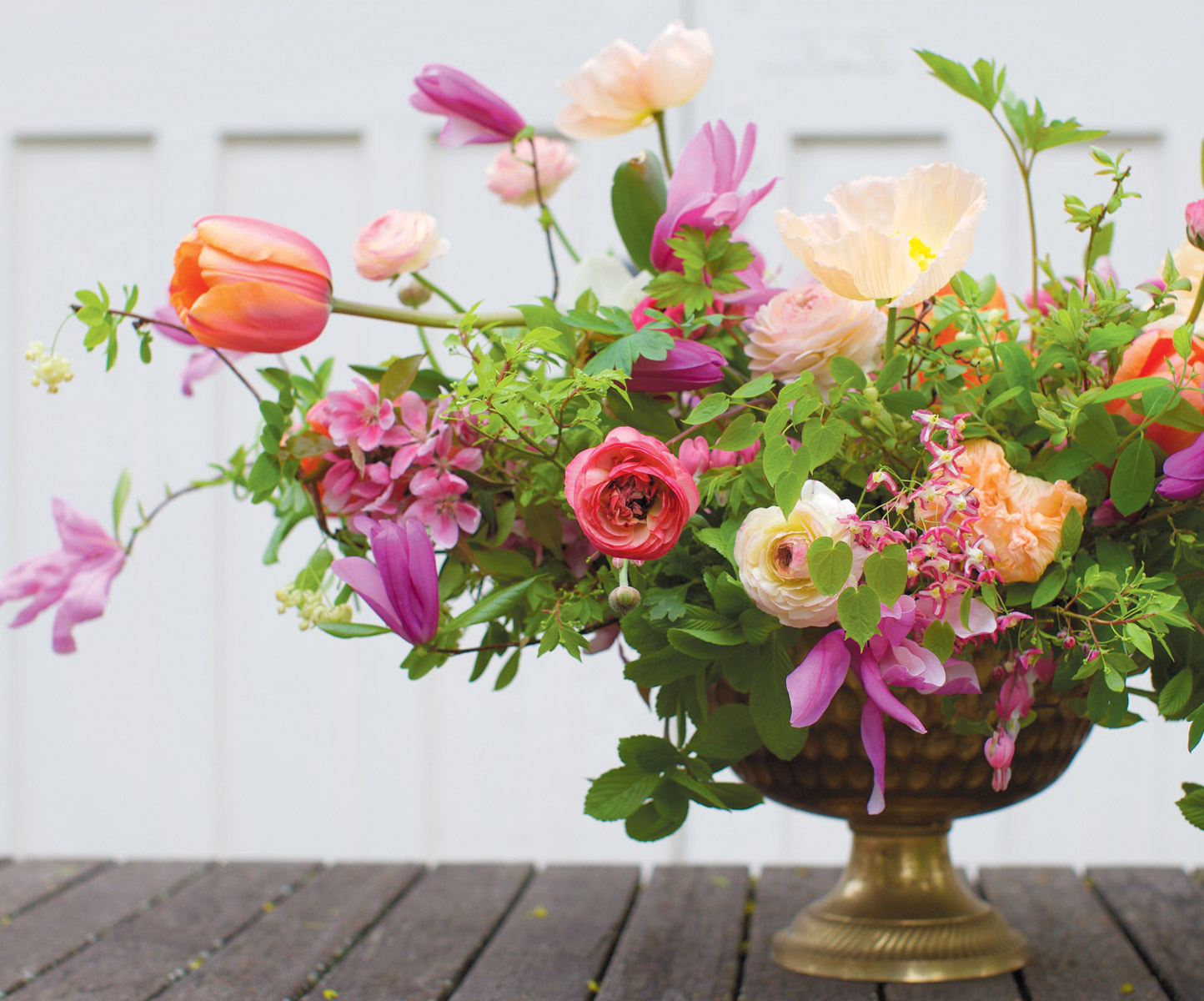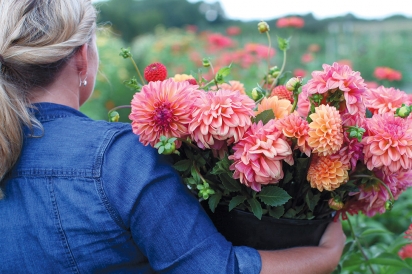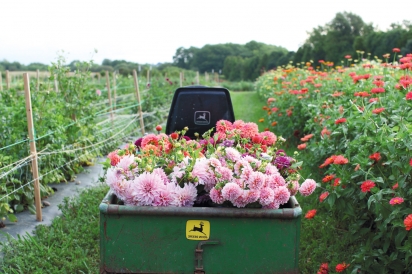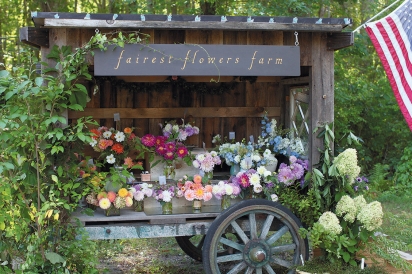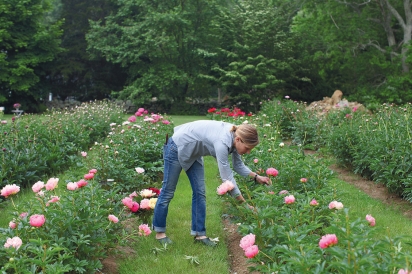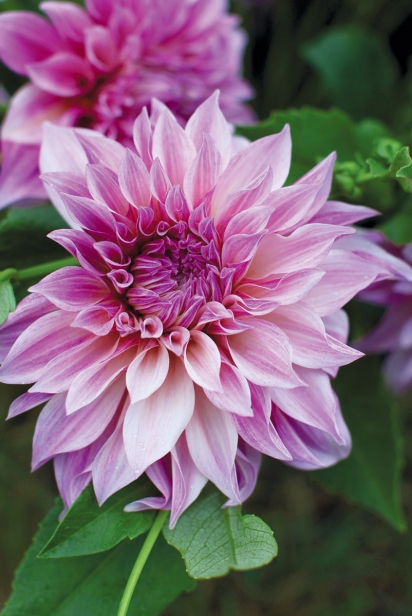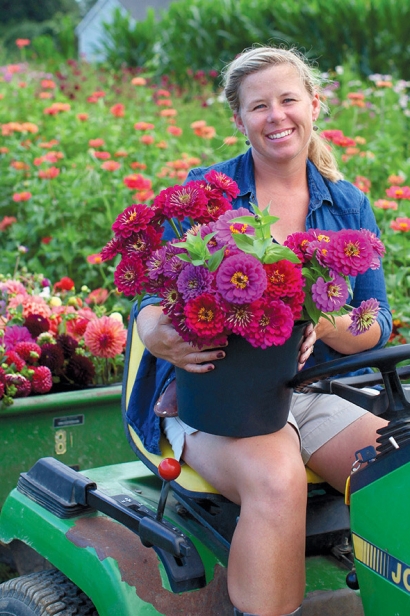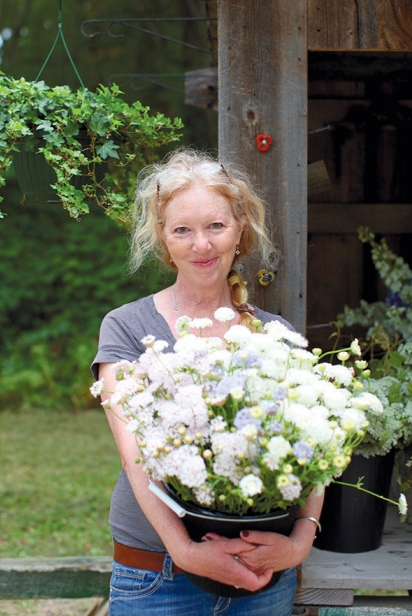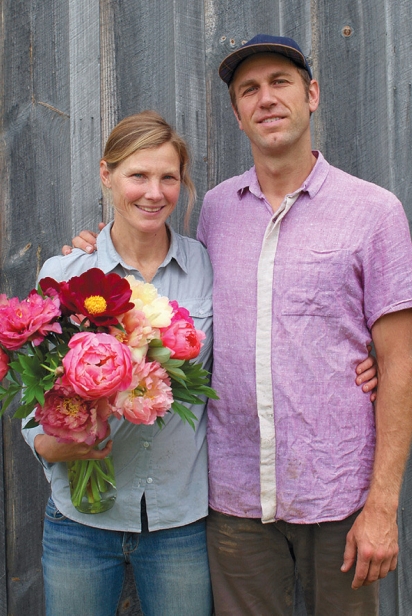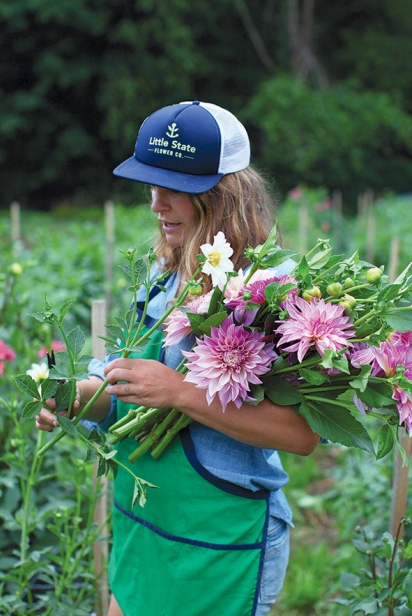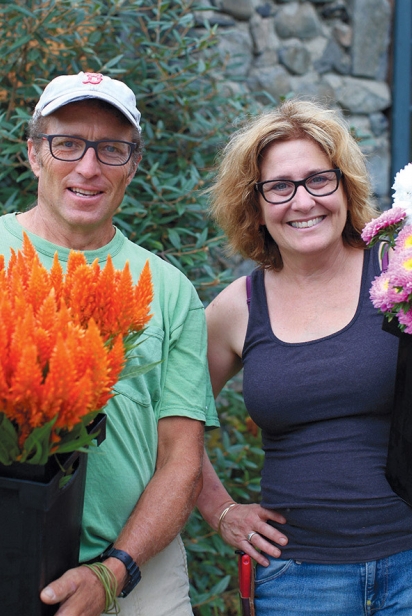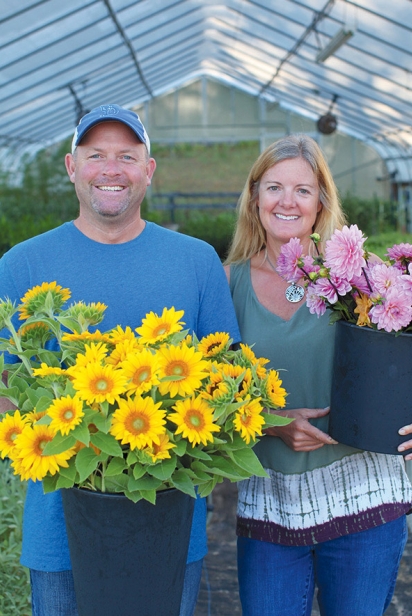Rhode Island in Full Bloom
Local Flower Farms Grow for an Industry Eager to Catch the Bouquet
In a state that boasts one of the most popular wedding destinations in the country it is no wonder that Rhode Island’s flower farmers and floral designers are at the forefront of the seasonal flower movement. In recent years, the trend for wedding flowers has shifted from a more traditional, formal approach to a looser, more organic design. With this shift, the number of cut flower farms has exploded.
“We’re a small state with a big wedding industry and there’s such a demand for local flowers now that the trend has moved to seasonally inspired design,” says floral designer and farmer Semia Dunne of Flowers by Semia.
Across the country, independent flower farmers and designers, such as Erin Benzakein of Seattle’s Floret Flower Farm and Sarah Ryhanen of Brooklyn’s Saipua, are rising to cult status and helping the local floral movement gain momentum. Utilizing their social media channels, especially Instagram (Benzakein alone has more than 400,000 followers), the flower designers’ luscious photos of overflowing dahlia arrangements and armfuls of sweet peas are driving the wedding trends towards seasonality.
“Clients are loving the field-to-vase look,” says floral designer Mary Kate Kinnane of The Local Bouquet, “and no two weddings ever look the same when using locally grown and foraged blooms.” There is such personality to the blooms being locally grown on small farms. A zinnia that would normally be cast aside at the flower market because of its less-than-perfect curved stem might instead serve as inspiration for a designer willing to embrace its curve.
“I’ve always been drawn to an aesthetic influenced by the natural shape and movement of flowers,” says floral designer Kim Lamothe of Greenlion Design. “I achieve that wild look and feel by using both foraged material and locally grown blooms. Because of that, I’ve come to know the farmers personally.”
Floral designers act as ambassadors of sort for the flower farmers, educating brides and clients on the blooms available each season. “Once you explain to a bride that a spring wedding means peonies, ranunculus and tulips, and a fall wedding means dahlias and zinnias, there is a sense of relief,” says Mary Kate. “They can put down their inspiration boards and instead focus on the colors, textures and florals that will be available on their wedding date.”
Included in the scope of educating clients is a discussion around the real cost of imported versus locally grown flowers. Imported flowers come with a high carbon footprint due to the many miles they travel, and often have been sprayed with insecticides, fungicides and preservatives. The floral designers then arrange these products with their bare hands, and less than 24 hours after the event the flowers end up in a landfill. It is a toxic and wasteful cycle.
“Many people think that buying local flowers is going to be cheaper than importing flowers,” notes flower farmer Anna Jane Kocon of Little State Flower Co. “While local blooms are more costly in the dollar sense, the environmental and humanitarian costs of imported flowers are so much greater.”
For those of us well-versed on the true costs of imported foods and factory farming, much of this should sound familiar, and in many ways the local, seasonal flower movement shares a mission with the local food movement.
“If your favorite restaurant has its farmers on speed dial, why shouldn’t your floral designer?” asks Anna. “Local flowers share the same desirable qualities that local food has over imported food: a fresher, more vibrant product, less environmental impact, fair wages paid to farm workers and the ability to keep dollars in the Rhode Island economy.”
While the wedding industry is typically very competitive, Rhode Island flower farmers have formed a supportive and tight-knit community, sharing growing tips and business advice.
“The demand for local flowers is so high that it makes our lives easier if we collaborate to make sure the supply is there,” says flower farmer Amy Rodrigues of The Dahlia Shed. “The designers benefit when we work together.” The demand for blush-hued Café au Lait dahlias is so high that Anna and Amy discuss their planting plans with each other, and their floral designers, in order to figure out if they can meet demand.
“I meet with my farmers in the winter months so that I know what to expect,” says Mary Kate. “And a lot of farmers have design experience, so I trust their aesthetic. We’ve all become friends, and we text and send pictures throughout the season.” During the early years of her career, Mary Kate had to drive all around New England to source flowers but now Rhode Island growers can mostly meet her needs. She also works frequently with flower farmer Phoebe Poole of Weatherlow Farms, who grows right over the state line in Westport, Massachusetts.
Phoebe, like many of the other growers and designers, has gotten creative in the ways she utilizes her farm.
“We open our barn for workshops, farm dinners and on-site events,” she says, “and that helps us stay viable.” Not only does it help small farms to diversify their offerings, in this case it also helps spread the local flower message.
Phoebe and Mary Kate have teamed up to offer hands-on workshops that cover everything from planting a cut flower garden to arranging bouquets. Semia offers several workshops throughout the year at her Providence studio space, as does floral designer Jill Rizzo of Studio Choo East.
“It is bigger than just growing flowers,” says Anna Kubik of Electric Moon Peony Farm, who also teams up with Mary Kate for workshops. “We’re sharing something with people. Beauty is not a trivial thing—it is an important life force and the earth expresses it through flowers. We want to share that beauty with people so they can take home a piece and turn it into their own experience.”
A Guide to Local Flower Growers
Dahlia Shed
It’s not unusual for Amy Rodrigues to strap on a headlamp and head out to her fields at 3 am to harvest before the sun gets too hot. She’s even gone so far as to hold an umbrella over a delicate Café au Lait bloom to prevent sun damage. This devotion to quality is what set her dahlias apart. Now in her fourth growing season on her Middletown property, Amy is expanding her growing area to an acre and planting over 1,000 dahlia tubers and continuing to supply local floral designers. DahliaShed.com
Electric Moon Peony Farm
Growing perennials has always appealed to Anne Kubik and David Rockermann, who together run Little Compton’s Electric Moon Peony Farm, where they sell peony blooms and rootstock.
“Our peony rootstock came from different parts of the world and landed in our garden,” Anna explains, “and that legacy is inspiring.” The cyclical nature of perennials comes with a sense of being invested in a place, and with that comes a commitment to stewardship and sustainability. ElectricMoonPeonyFarm.com
Fairest Flowers
Elizabeth Harris has always enjoyed gardening, mostly as a hobby while she raised her family. Over the years, as her North Scituate garden expanded, she wished to share her abundant blooms. A restored farmer’s gathering wagon with bunches of flowers for sale now sits at the end of her driveway, inviting those passing by to share in her bounty. She also supplies a few local floral designers with blooms, and is known for her exquisite heirloom and garden roses. FairestFlowers.com
Little State Flower Co.
Anna Jane Kocon encourages the florists she works with to visit her farm. “If you haven’t personally visited the farm where your flowers are grown,” she says, “you can’t verify the environmental state and humanitarian aspect. Our commitment to sustainability and community equals our commitment to growing gorgeous, high-quality blooms.” Her five-acre specialty cut flower farm on Aquidneck Island supplies flowers for the wedding, event and floral design industries in Rhode Island, and the Aquidneck Growers’ Market. LittleStateFlowerCo.com
Robin Hollow Farm
As the first cut-flower growers in Rhode Island, Polly and Mike Hutchison bring decades of horticultural wisdom to their practice. Polly runs the design side while Mike handles the production and logistics of two acres of flower fields on their Saunderstown property, in addition to a larger swath of land rented from the Narrow River Land Trust. They offer their blooms to their seasonal CSA members, farmers’ markets, arrangements for special events and weddings, DIY flowers in bulk and wholesale to florists. RobinHollowFarm.com
South County Flowers
When Nancy Viseth and her husband, Dean, moved back from California to take over her family’s Charlestown horse farm, they were armed with little more than a copy of The Flower Farmer (Chelsea Green, 2008) by Lynn Byczynski, a desire to grow cut flowers and a willingness to learn through trial and error. Now with three acres of field production and three greenhouses, they supply cut flowers for on- and off-site weddings and events, a summer CSA flower share and wholesale to local floral designers. SouthCountyFlowers.com
The floral designers mentioned in article above can be found at: FlowersBySemia.com • GreenlionDesign.com TheLocalBouquet.com • StudioChoo.com • FloralCoLab.com


